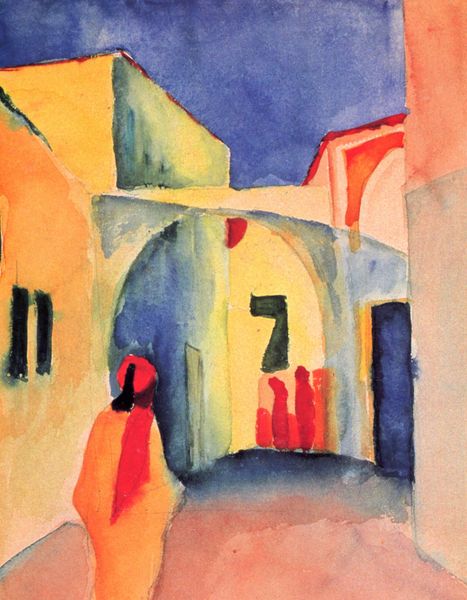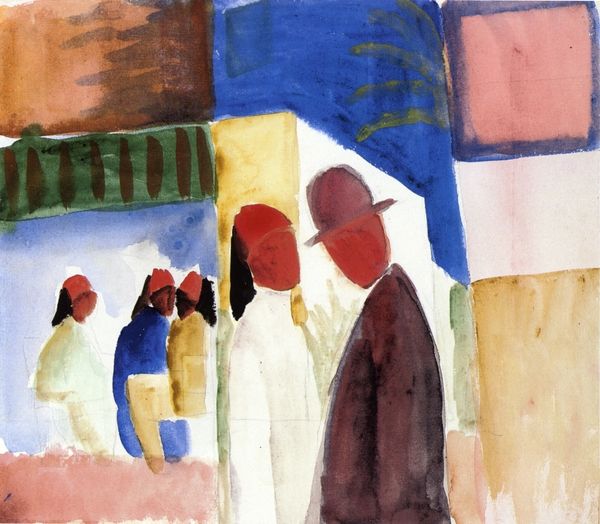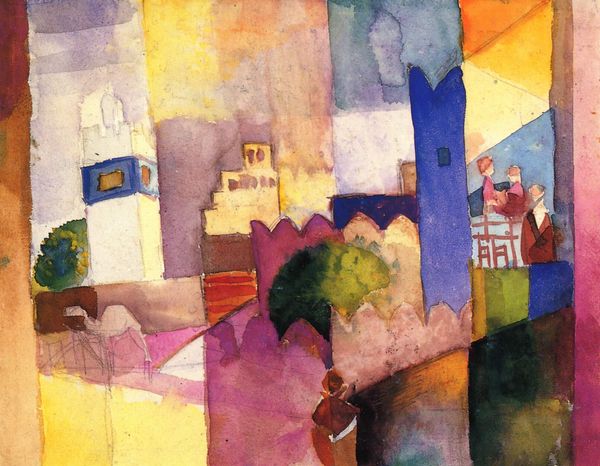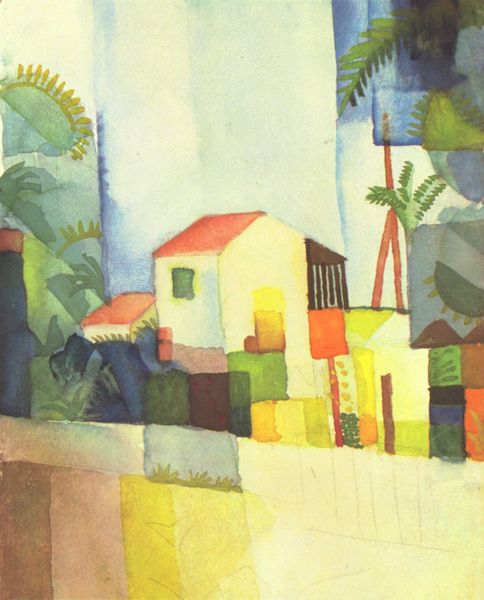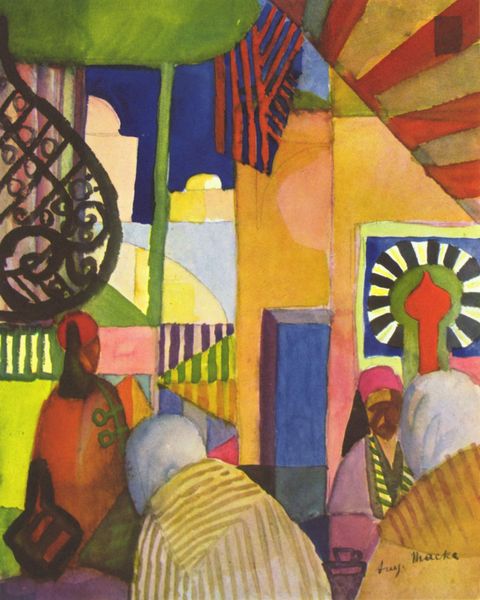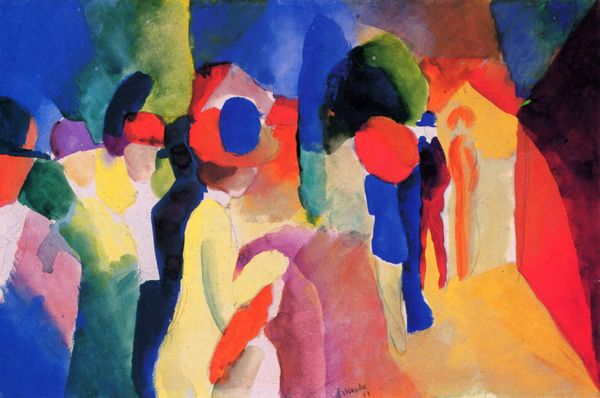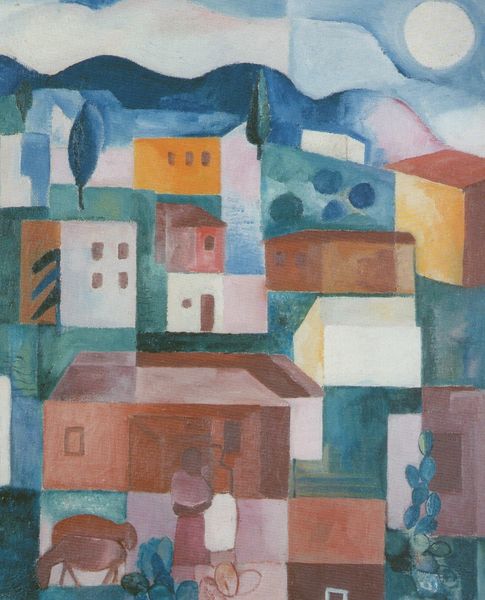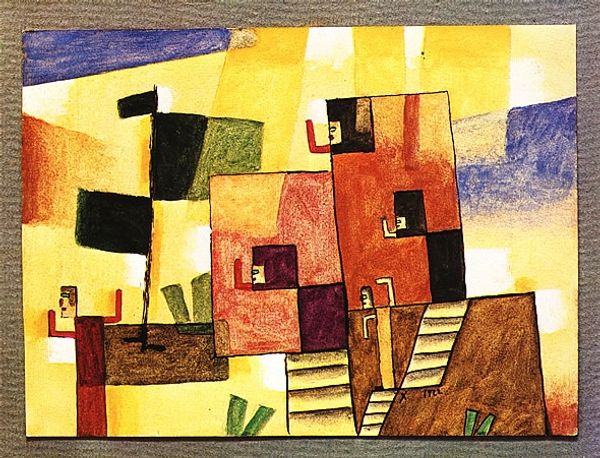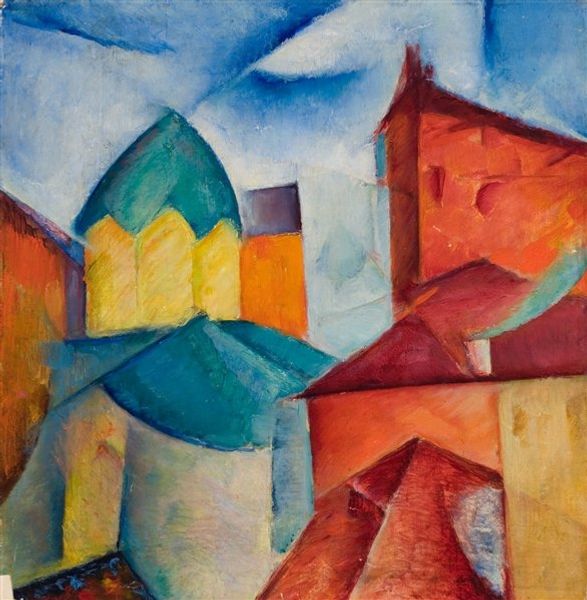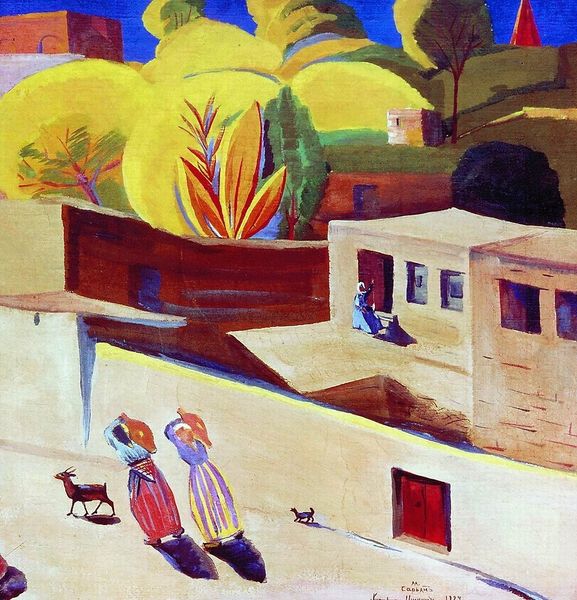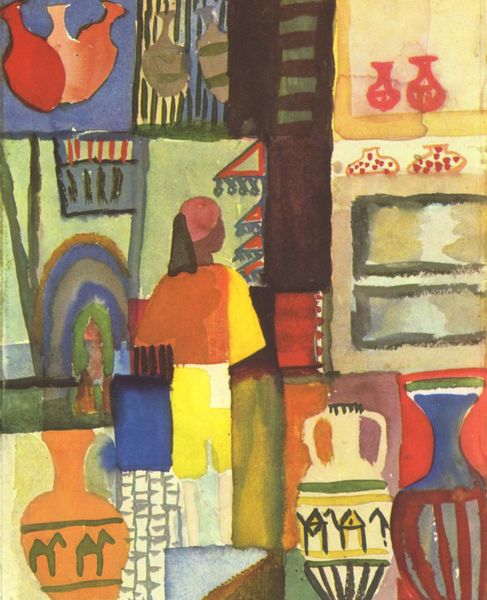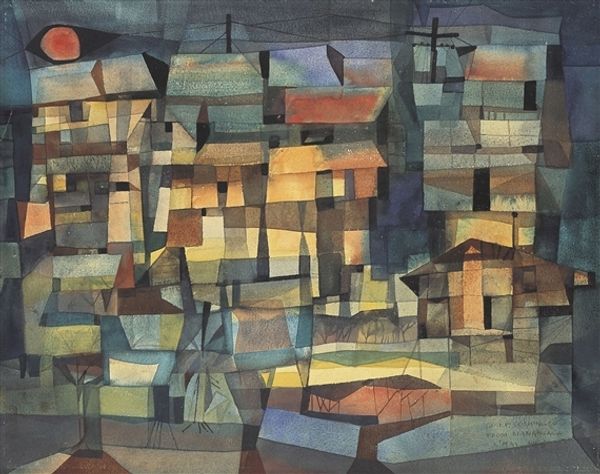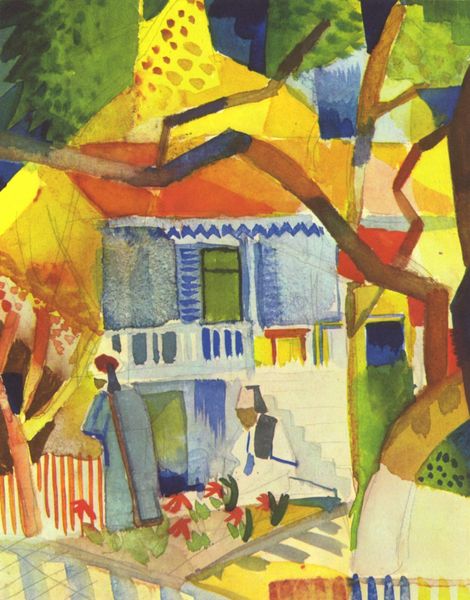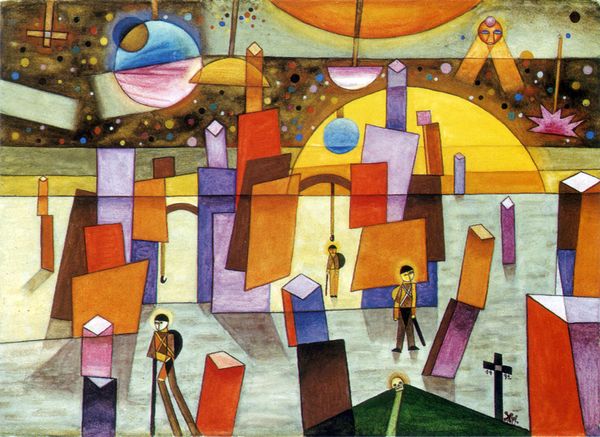
plein-air, watercolor
#
plein-air
#
landscape
#
figuration
#
watercolor
#
expressionism
#
cityscape
Copyright: Public domain
Editor: Here we have August Macke's "Market in Algiers," created in 1914 using watercolor. I'm struck by the way the light seems to bounce off everything, giving it a very immediate feel. What do you see in this piece? Curator: I see an engagement with the very means of representation itself. Macke isn't just depicting a market; he's revealing the materiality of watercolor—the way pigment interacts with paper to evoke light and form. Think about the swiftness of application; each stroke suggests a moment, an impression caught in time. What do you think that quick application tells us about the creation of the artwork? Editor: I suppose that by using such fast strokes and methods it gives it an urgent feel as if it had to be created fast. Curator: Exactly. Also, consider the socio-economic context: watercolor was readily accessible. By employing it to document his travels, Macke blurs the lines between "high" art and the more utilitarian forms of visual documentation. Do you see this having an impact on the way people were perceiving fine art? Editor: It’s interesting you point that out, because previously these kinds of documents might have been sketches in preparation for painting with oil, and now they're more finalized. Curator: Precisely! This accessibility democratizes art-making, empowering artists to bypass traditional channels. Now look at how Macke uses blocks of colour and notice any sort of repeating pattern. Where do you see the different kinds of labour represented or implicated? Editor: There is so much to find from these different shapes that are distributed within this piece. I now realize how radical Macke's work was and what impact it would make at the time it was created. Curator: Absolutely, a materialist reading underscores how artistic choices are bound up with both available resources and socio-cultural shifts. By questioning art traditions we can broaden our view of how the painting was produced, and reflect on the art practices of the time.
Comments
No comments
Be the first to comment and join the conversation on the ultimate creative platform.
